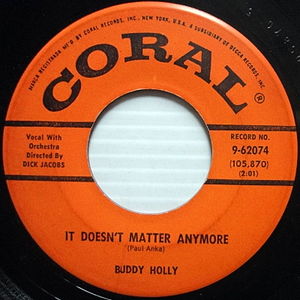
Dame Shirley Veronica Bassey is a Welsh singer. Known for her career longevity, powerful voice and recording the theme songs to three James Bond films, the only artist to perform more than one, Bassey is one of the most popular vocalists in Britain.

Mary Hopkin, credited on some recordings as Mary Visconti from her marriage to Tony Visconti, is a Welsh singer best known for her 1968 UK number 1 single "Those Were the Days". She was one of the first artists to be signed to the Beatles' Apple label.

Michael Stock is an English songwriter, record producer, musician, and member of the songwriting and production trio Stock Aitken Waterman. He has been responsible for over a hundred top-40 hits in the UK, including 16 Number One's and is recognised as one of the most successful songwriters of all time by the Guinness World Records. As part of Stock Aitken Waterman in the 1980s and 90s, he holds the UK record of 11 number one records with different acts. In the UK Singles Chart he has written 54 top-ten hits including 7 number ones.

Westlife are an Irish pop group formed in Dublin in 1998. The group consists of members Shane Filan, Mark Feehily, Kian Egan, and Nicky Byrne. Brian McFadden was a member before leaving in 2004. The group disbanded in 2012 after 14 years and later reunited in 2018.

Jasper Cini, known professionally as Al Martino, was an American traditional pop and jazz singer. He had his greatest success as a singer between the early 1950s and mid-1970s, being described as "one of the great Italian American pop crooners", and became known as an actor, particularly for his role as singer Johnny Fontane in The Godfather.

The Christians are a musical ensemble from Liverpool, England. They had the highest selling debut album of any artist at Island Records and international chart hits in the late 1980s and early 1990s.

Michael Philip Batt, LVO is an English singer-songwriter, musician, arranger, record producer, director, and conductor. He was formerly the Deputy Chairman of the British Phonographic Industry.

Annunzio Paolo Mantovani was an Italian British conductor, composer and light orchestra-styled entertainer with a cascading strings musical signature.

"Candle in the Wind 1997", also known as "Goodbye England's Rose" and "Candle in the Wind '97", is a threnody by English musician Elton John and songwriter Bernie Taupin, a re-written and re-recorded version of their 1973 song "Candle in the Wind". It was released on 13 September 1997 as a tribute single to Diana, Princess of Wales, with the global proceeds from the song going towards Diana's charities. In many countries, it was pressed as a double A-side with "Something About the Way You Look Tonight". It was produced by Sir George Martin.
"Let Me Go, Lover!", a popular song, was written by Jenny Lou Carson and Al Hill, a pen name used by Fred Wise, Kathleen Twomey, and Ben Weisman. It is based on an earlier song called "Let Me Go, Devil", about alcoholism.
"Magic Moments" is a popular song composed by Burt Bacharach and written by Hal David, being one of the first songwriting collaborations by that duo. This song was recorded by Perry Como and released in 1957 as the B-side of his "Catch a Falling Star"; it reached No. 1 in the UK in 1958.

"White Christmas" is an Irving Berlin song reminiscing about an old-fashioned Christmas setting. The song was written by Berlin for the 1942 musical film Holiday Inn. The composition won the Academy Award for Best Original Song at the 15th Academy Awards. Bing Crosby's record topped the Billboard chart for 11 weeks in 1942 and returned to the number one position again in December 1943 and 1944. His version would return to the top 40 a dozen times in subsequent years.

The UK singles chart is compiled by the Official Charts Company (OCC), on behalf of the British record industry, listing the top-selling singles in the United Kingdom, based upon physical sales, paid-for downloads and streaming. The Official Chart, broadcast on BBC Radio 1 and formerly MTV, is the UK music industry's recognised official measure of singles and albums popularity because it is the most comprehensive research panel of its kind, today surveying over 15,000 retailers and digital services daily, capturing 99.9% of all singles consumed in Britain across the week, and over 98% of albums. To be eligible for the chart, a single is currently defined by the OCC as either a "single bundle" having no more than four tracks and not lasting longer than 25 minutes or one digital audio track not longer than 15 minutes with a minimum sale price of 40 pence. The rules have changed many times as technology has developed, with digital downloads being incorporated in 2005 and streaming in July 2014.

"Mull of Kintyre" is a song by the British-American rock band Wings. It was written by Paul McCartney and Denny Laine in tribute to the Kintyre peninsula in Argyll and Bute in the south-west of Scotland and its headland, the Mull of Kintyre, where McCartney has owned High Park Farm since 1966.

"Wooden Heart" is a pop song recorded by Elvis Presley. The composition is based on a German folk song "Muss i denn" and it was featured in the 1960 Elvis Presley film G.I. Blues. The song was a hit single for Presley in the UK Singles Chart, reaching No. 1 for six weeks in March and April 1961.
McGuinness Flint was a rock band formed in 1970 by Tom McGuinness, a bassist and guitarist with Manfred Mann, and Hughie Flint, former drummer with John Mayall; plus vocalist and keyboard player Dennis Coulson, and multi-instrumentalists and singer-songwriters Benny Gallagher and Graham Lyle.

The Silencers are a Scottish rock band formed in London in 1986 by Jimme O'Neill and Cha Burns, two ex-members of the post-punk outfit Fingerprintz. Their music is characterised by a melodic blend of pop, folk and traditional Celtic influences. Often compared to Scottish bands with a similar sound like Big Country, Del Amitri and The Proclaimers, The Silencers have distinguished themselves with their eclectic sounds, prolific output and continued career. Their first single, "Painted Moon," was a minor international hit and invited critical comparisons to Simple Minds and U2. In 1987 they released their first album A Letter From St. Paul, which included "Painted Moon" and another minor hit, "I See Red." Buoyed by the huge European hit "Bulletproof Heart", the band's third album Dance to the Holy Man is the band's commercial peak to date. Throughout the 1990s, The Silencers saw a popular taste shift away from their songwriter-based style of music toward grunge and electronic music.
"It's All Over Now" is a song written by Bobby Womack and his sister-in-law Shirley Womack. It was first released by The Valentinos, featuring Bobby Womack, in 1964. The Rolling Stones heard it on its release and quickly recorded a cover version, which became their first number-one hit in the United Kingdom, in July 1964.

"It Doesn't Matter Anymore" is a pop ballad written by Paul Anka and recorded by Buddy Holly in 1958. The song was issued in January 1959, less than a month before Holly's death. "It Doesn't Matter Anymore" reached number 13 as a posthumous hit on the Billboard Hot 100 chart in early 1959, shortly after Holly was killed in a plane crash on February 3, 1959. The single was a two-sided hit, backed with "Raining in My Heart". "It Doesn't Matter Anymore" was Holly's last US Top 20 hit and featured the orchestral backing of Dick Jacobs. It was also successful in the United Kingdom, where it became the country's first posthumous number 1 hit.














